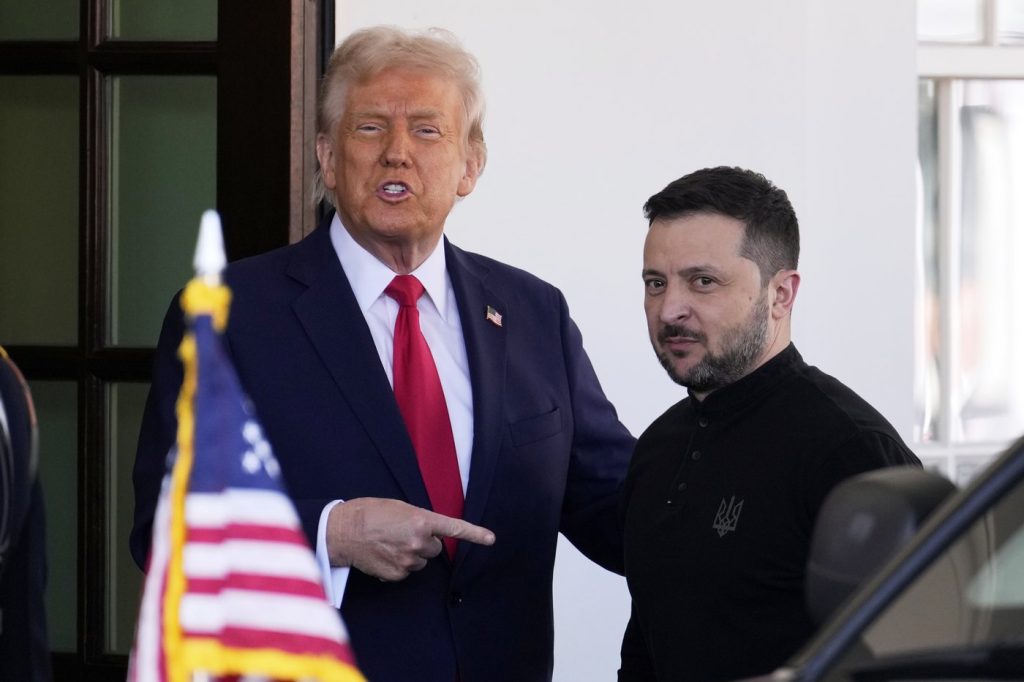KYIV, Ukraine — After months of intense negotiations, a significant agreement has been reached between the United States and Ukraine. This deal, signed on Wednesday, aims to provide Washington access to critical minerals and other natural resources in Ukraine, a move that Kyiv hopes will secure long-term military and economic support against Russian aggression. Ukrainian officials have indicated that this iteration of the agreement is more advantageous for their country compared to previous proposals, which positioned Ukraine as a junior partner, granting the U.S. extensive rights to Ukrainian resources.
While the full text of the deal has not been publicly disclosed, officials from the Economy Ministry and the Prime Minister's office have shared key details. The agreement requires ratification by the Ukrainian parliament and includes provisions for a reconstruction fund intended to guarantee ongoing American military assistance. Past attempts to finalize a similar deal had stalled after a contentious meeting involving U.S. President Donald Trump, U.S. Vice President JD Vance, and Ukrainian President Volodymyr Zelenskyy.
Ukrainian Economy Minister Yulia Svyrydenko emphasized that this newly drafted agreement creates mutually beneficial conditions for both nations, highlighting the U.S. commitment to fostering long-term peace in Ukraine and acknowledging Ukraine's sacrifices in global security by relinquishing its nuclear capabilities.
The timing of the signing coincides with what U.S. Secretary of State Marco Rubio termed a "very critical week" for U.S.-led diplomatic efforts to end the ongoing war, which has seen sluggish progress. Ukraine views this deal as essential for ensuring that its primary ally, the U.S., remains engaged and does not withdraw military support, a crucial element in its ongoing battle against Russia’s full-scale invasion.
Treasury Secretary Scott Bessent remarked that the agreement sends a clear signal to Russia about the Trump administration's dedication to a peace process that promotes a free, sovereign, and prosperous Ukraine.
The deal encompasses various minerals, particularly rare earth elements, and includes significant resources such as oil and natural gas. However, it notably does not apply to existing revenue-generating resources for Ukraine. The profits generated from this agreement will depend on the success of new investments, ensuring that Ukraine retains full ownership of its resources and determines extraction processes.
Furthermore, the agreement does not impose any debt obligations on Ukraine, allowing profits from the fund to support future initiatives without the burden of repaying previous U.S. assistance.
Rare earth elements, a vital group of 17 components utilized in numerous consumer technologies—including smartphones, hard drives, and electric vehicles—are part of the focus of this deal. Notably, China currently dominates the market for these essential minerals, prompting both the U.S. and Europe to seek alternatives to reduce dependency on Beijing.
The reconstruction investment fund proposed under the agreement is expected to be co-managed by the U.S. and Ukraine. Financing for the fund will come through the U.S. International Development Finance Corporation, which Ukraine anticipates will attract investments and advanced technologies from American and European partners. Ukraine aims to inject 50% of future profits from state-owned natural resources into the fund, with the U.S. contributing through direct financial support and military equipment, including vital air defense systems.
Profits from the fund will be reinvested over the first decade into projects focused on mining, oil, gas, and infrastructure development. Initial U.S. proposals sought $500 billion in profits from the mineral exploitation as reimbursement for war-related support, a figure that President Zelenskyy rejected, stating that such an agreement would impose an unsustainable financial burden on future generations of Ukrainians.
Despite the promising nature of this agreement, Ukraine's mineral industry remains largely untapped, hindered by governmental regulations, a lack of comprehensive geological data, and the ongoing conflict. Nevertheless, the nation's reserves of titanium and lithium are believed to be some of the largest in Europe, with the mineral sector historically contributing significantly to Ukraine's economy—accounting for 6.1% of its GDP and 30% of exports in 2021. However, current estimates suggest that 40% of Ukraine's metallic mineral resources are inaccessible due to Russian occupation, emphasizing the urgency for the development of alternative resources while they are still available.










